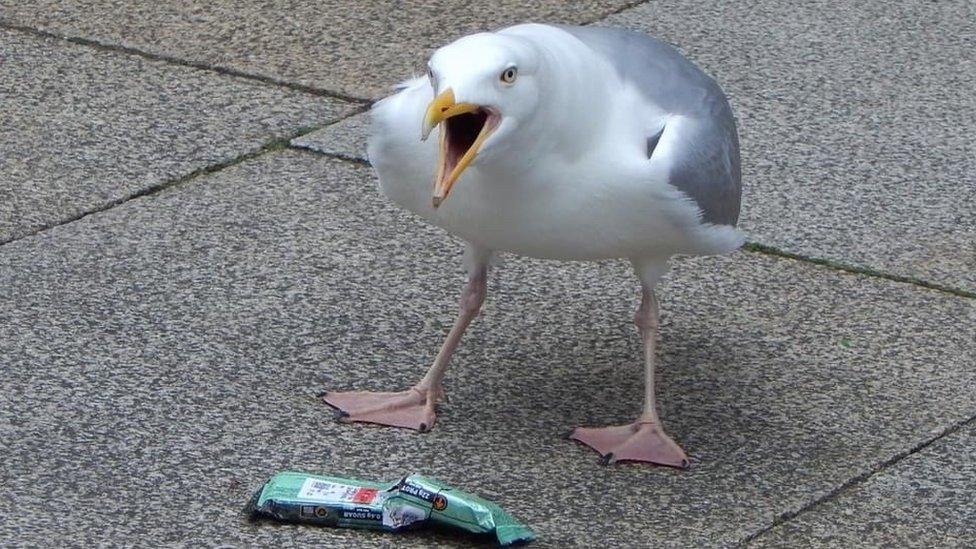Study finds shouting may stop gulls stealing food
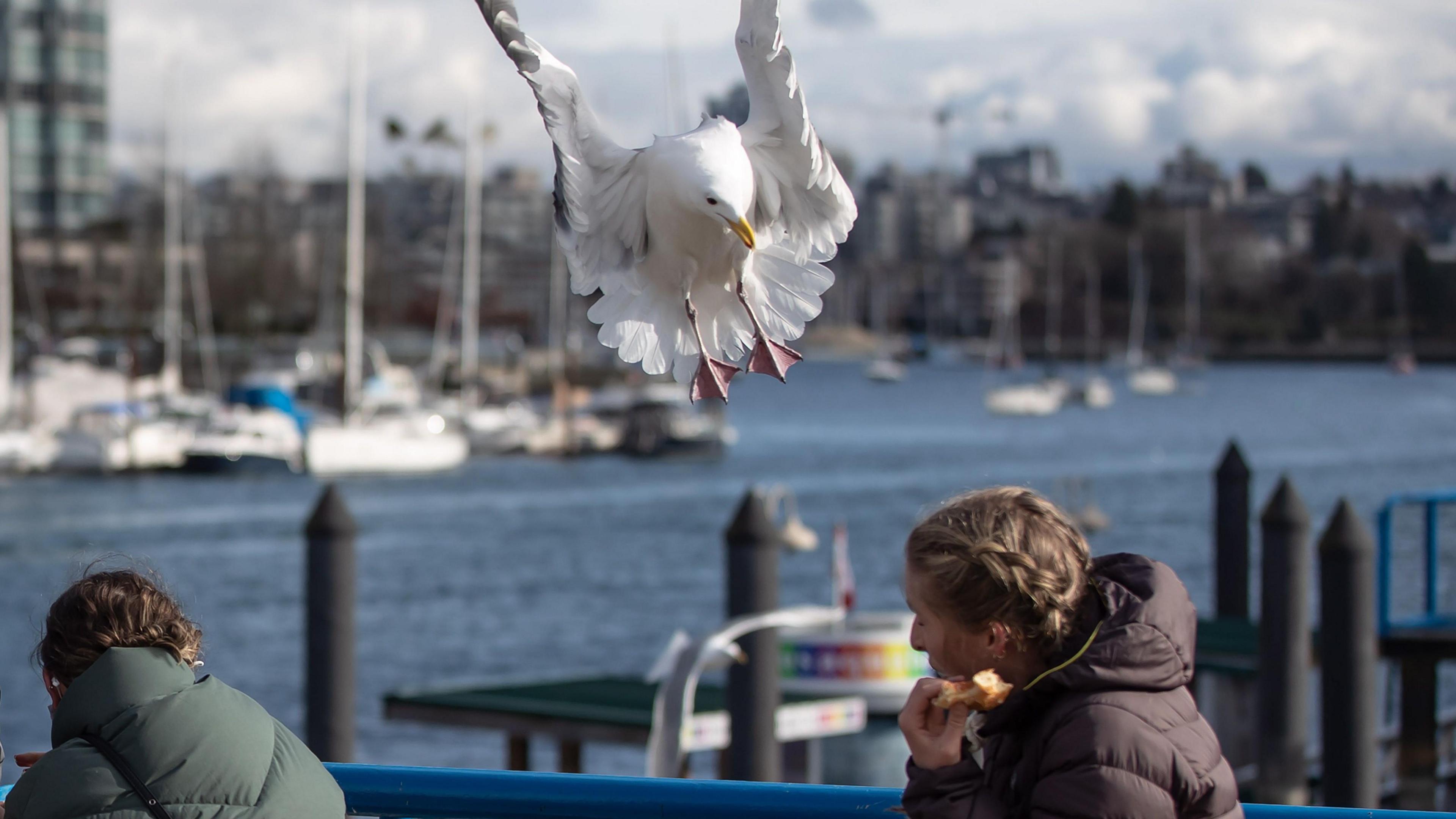
Researchers found a recording of a man shouting was the most off-putting to gulls
- Published
Shouting at gulls makes them more likely to leave your food alone, research has revealed.
University of Exeter researchers put a closed box of chips on the ground to attract herring gulls and watched the effect different recordings had on them.
Once a gull approached, they played either a recording of a male voice shouting the words "no, stay away, that's my food", the same voice speaking those words or the birdsong of a robin.
They tested a total of 61 gulls across nine seaside towns in Cornwall and found nearly half of those exposed to the shouting voice flew away within a minute. In contrast, 70% of gulls exposed to the robin song stayed near the food for the duration of the experiment.
'Peaceful ways to deter them'
The team said they found 15% of the gulls exposed to the speaking male voice flew away, while the rest walked away from the food, still sensing danger.
Dr Neeltje Boogert of the Centre for Ecology and Conservation at the Penryn campus said: "So when trying to scare off a gull that's trying to steal your food, talking might stop them in their tracks but shouting is more effective at making them fly away."
The university said the experiment was designed to show that physical violence was not necessary to scare off gulls, and the researchers used male voices as most crimes against wildlife were carried out by men.
"Most gulls aren't bold enough to steal food from a person, I think they've become quite vilified," said Dr Boogert.
"What we don't want is people injuring them. They are a species of conservation concern, and this experiment shows there are peaceful ways to deter them that don't involve physical contact," added Dr Boogert.
In 2020, a study by scientists at the University of Exeter found gulls were more likely to be attracted to food which had been handled by humans.
In the study, scientists offered herring gulls a choice of two identical food items, from which 79% of the gulls opted for items they had seen in human hands.
In 2019, researchers at the university also found the secret to protecting your seaside chips from scavenging gulls was to stare at them.
The study revealed birds were more likely to steal food when they avoided the gaze of their victims.
Gulls are protected under the Wildlife and Countryside Act 1981 so it is an offence to intentionally injure or kill any gull, or to take, damage or destroy an active nest or its contents.
Follow BBC Cornwall on X, external, Facebook, external and Instagram, external. Follow BBC Devon on X, external, Facebook, external and Instagram, external. Send your story ideas to spotlight@bbc.co.uk, external.
- Published14 June
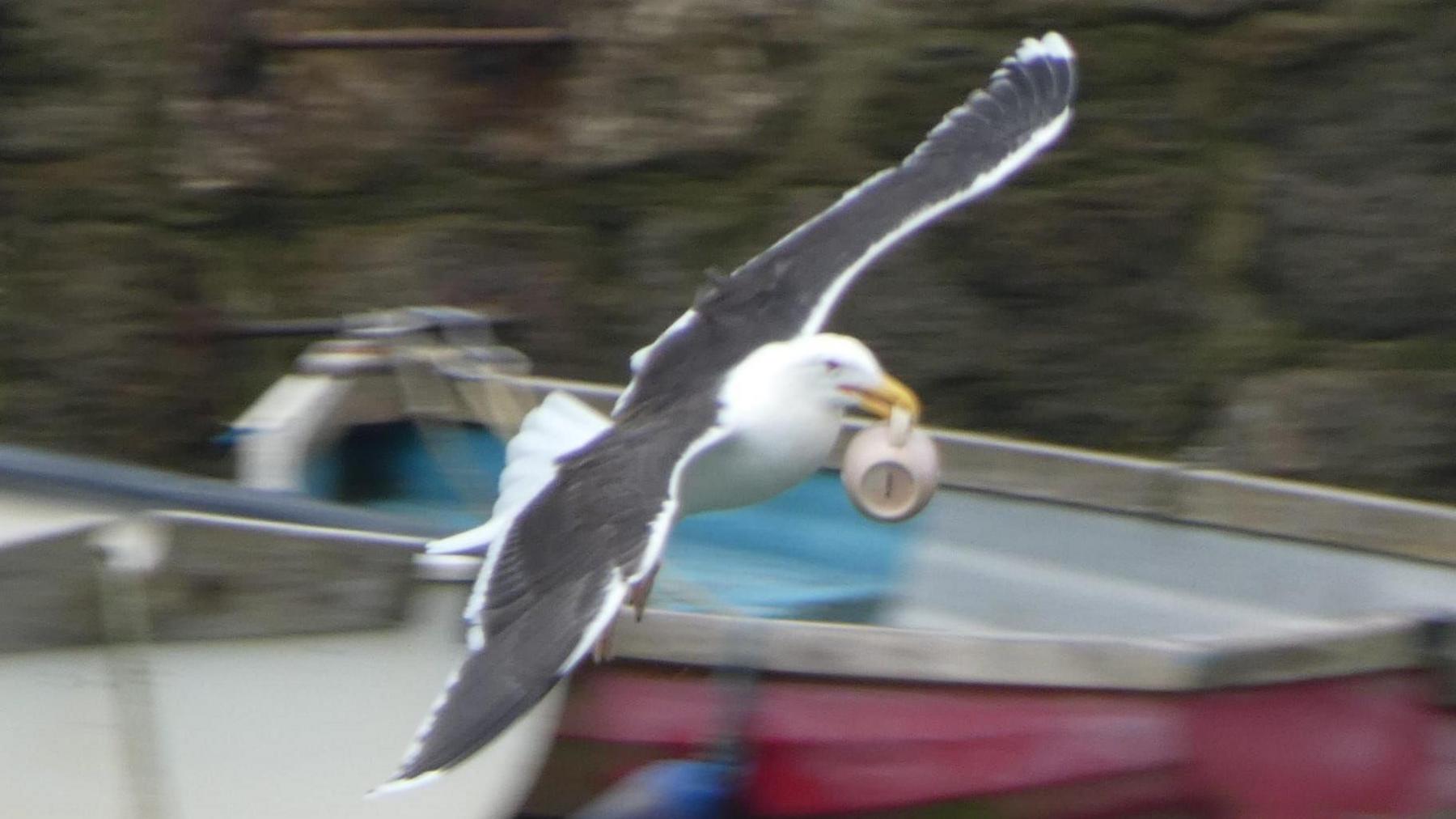
- Published24 June
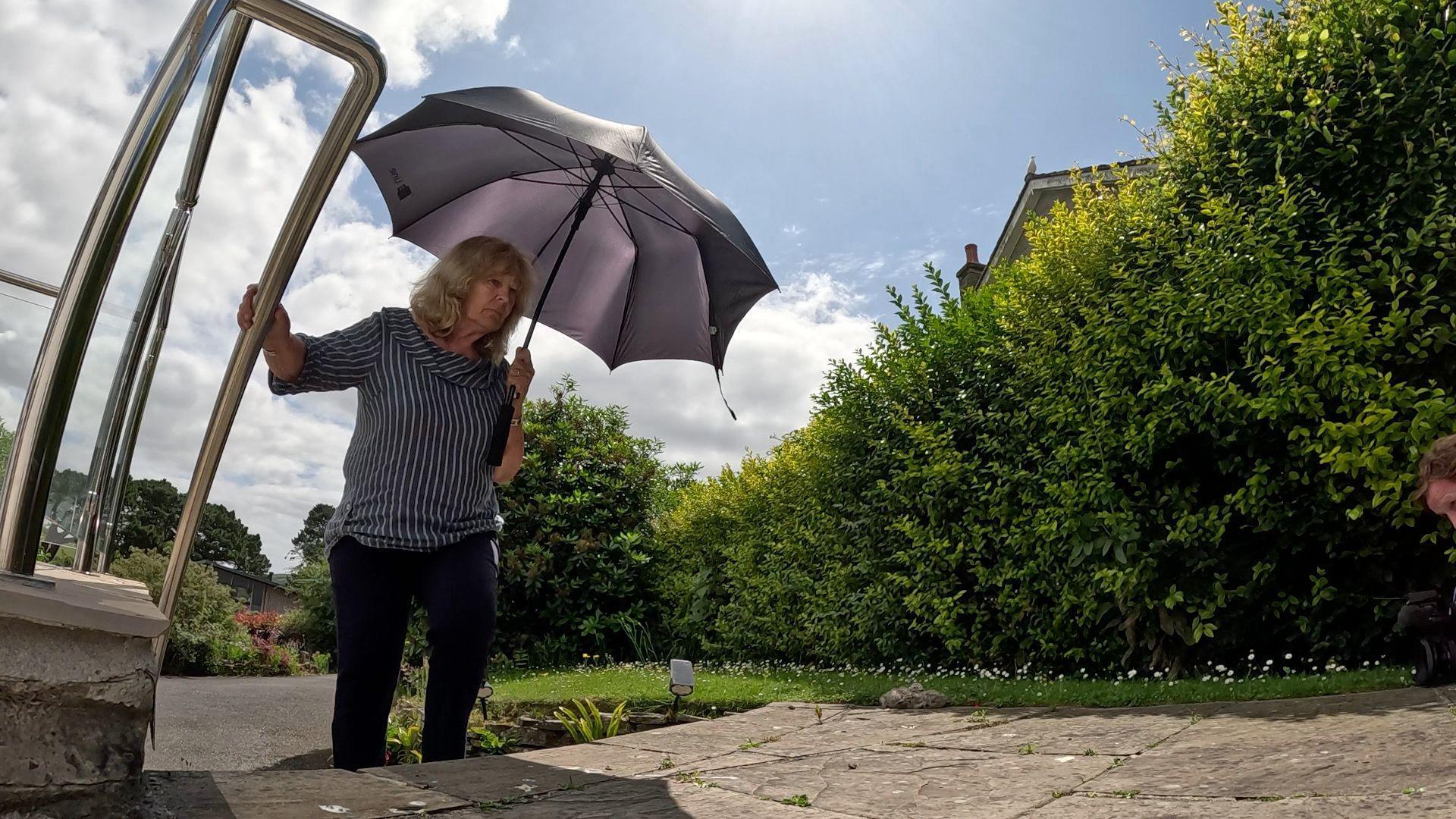
- Published18 May 2022
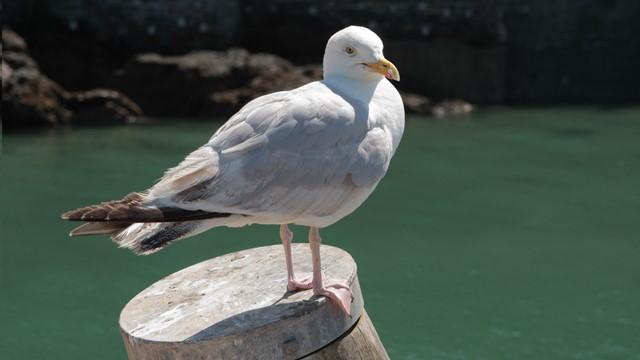
- Published22 June 2022

- Published26 February 2020
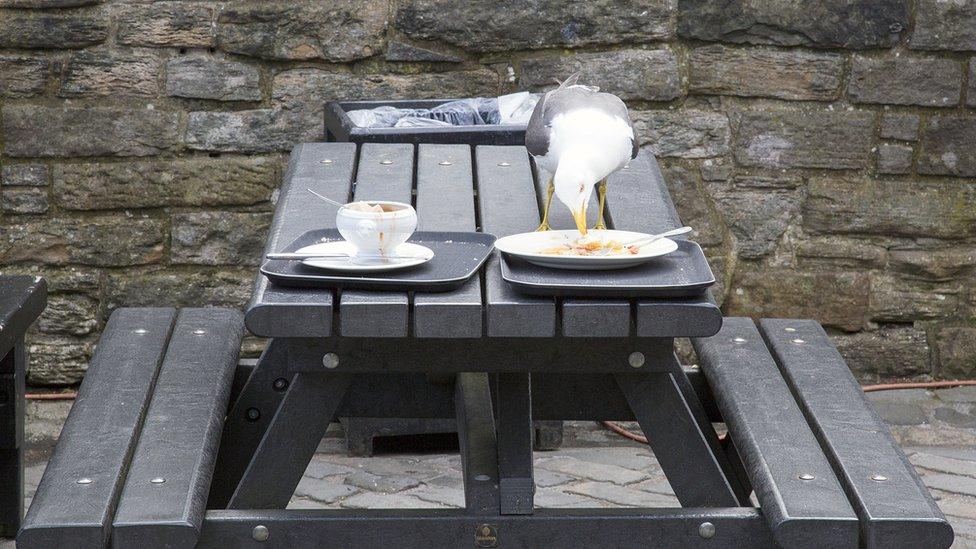
- Published20 April 2022
